Archive | Transport RSS feed for this section
Economics, Industry and trade, Private sector development, Subjects, Transport
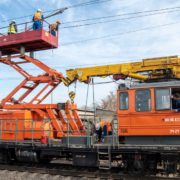 Economics, Transport, Urban development
Economics, Transport, Urban development
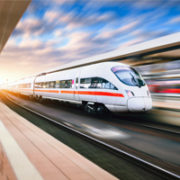 Governance and public sector management, Transport
Governance and public sector management, Transport
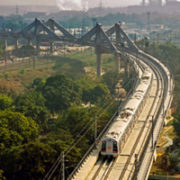 Governance and public sector management, Transport, Urban development
Governance and public sector management, Transport, Urban development
 Transport, Urban development
Transport, Urban development
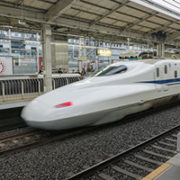 Economics, Transport
Economics, Transport
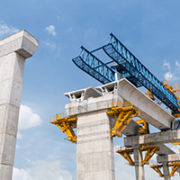 Transport
Transport
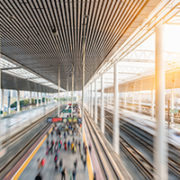 Economics, Finance sector development, Transport
Economics, Finance sector development, Transport
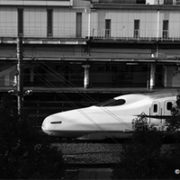
Infrastructure investment to spur firm performance in Central Asia

Effective infrastructure projects not only construct infrastructure, such as roads, railways, water supply, and electricity, but can boost economic growth in the surrounding region through “spillover effects” (Yoshino, Azhgaliyeva, and Mishra 2021). The infrastructure benefits firms by lowering costs and improving connectivity and the ease of doing business, leading to greater sales and exports.
Measuring the economic and social impacts of high-speed rail

The scale of investments in high-speed rail (HSR) raises questions about the most appropriate methods of appraisal. Increasingly the reliance on conventional cost–benefit analysis, based essentially on the direct benefits to users and the direct costs to operators, has been questioned.
Thinking beyond the suitability of high-speed railway in India

In India, the project to build the country’s first 500-kilometer high-speed railway (HSR) from Mumbai to Ahmedabad is underway. For comparison, all top 10 economies in the world except the United States have constructed several HSR lines in the past 30 years. The People’s Republic of China (PRC) alone has built nearly 28,000 kilometers of HSR in the past 20 years. Nevertheless, opinion makers in India are expressing contradicting views, questioning whether it is suitable for the country to develop expensive infrastructure such as HSR.
Don’t be derailed by rights-of-way

The disappointing scale-back of California’s showcase high-speed rail system between San Francisco and Anaheim has many experts asking what lessons can be learned. Similar pushbacks have occurred on other continents: witness the popular resistance to construction of a new superstation as part of Stuttgart’s urban renewal, which escalated into violent demonstrations, delays, and stalemates.
Delivering safety for high-speed rail

As we are increasingly relying on technical innovations to solve some of society’s most complex problems, technological advancements such as artificial intelligence are contributing to new, modern modes of transportation, especially to enhancing safety. However, technology is only one of many critical factors for safety, and there is a need to understand the other factors.
A step forward in attracting private sector financing for infrastructure projects

Such infrastructure projects would not be effective without proper operation and maintenance, and economic activities would be unsustainable without efficient infrastructure. The transport sector is an important component of any economy, and it is a crucial input for development. This is especially so in a globalized economy, where economic opportunities are increasingly related to the efficient mobility of people, goods, and information.
High-Speed Rail: Necessary but not sufficient for socioeconomic development

Since its inception in Japan in 1964, high-speed rail (HSR), and its impact on the economy, has received attention from policymakers worldwide. Early HSR development was more of a race to go faster, and the early success led policymakers around the world to believe in the power of HSR for catalyzing growth.
Spillover and straw effects of high-speed rail

On a typical ride on the Tokaido Shinkansen traveling from Shin-Osaka to Tokyo, it does not take a childlike imagination to notice the view from the bullet train of scattered cars, small houses, and baseball fields, gradually changing as the train approaches its destination to packed apartment buildings and tall office towers. This is an important phenomenon of high-speed rail (HSR) implementation, which can be described by the terms “spillover effect” and “straw effect.”


Search
Subscribe / Connect to Asia Pathways
Subjects
- Accelerating Progress in Gender Equality
- Addressing Remaining Poverty and Reducing Inequality
- Agriculture and natural resources
- Capacity development
- Climate change
- Economics
- Education
- Energy
- Environment
- Finance and Innovation
- Finance sector development
- Gender
- Globalization and Economic Stability
- Governance and public sector management
- Health
- Human Capital Development for Inclusive Growth and Shared Prosperity
- Industry and trade
- Information and Communications Technology
- Infrastructure
- Making Cities More Livable
- Miscellaneous
- Population
- Poverty
- Private sector development
- Regional cooperation and integration
- Sanitation
- Social development and protection
- Strengthening Governance and Institutional Capacity
- Subjects
- Transport
- Uncategorized
- Urban development
- Video Blog
- Water
Recent Posts
- The Promise and Perils of Mother Tongue-Based Education
- From Crisis to Resilience: The Evolution of the Banking Sector in Asia and the Pacific
- Tariffs on the Table: What Could Be Asia’s Next Move?
- Investing in Childcare a Win for Women and the Economy
- Flush and Flourish: Upgraded Toilets Can Transform Lives in Rural Asia




Recent Comments